Letter to the Editor from Keith Tordoff MBE
For many years, the NYE has been covering unsolved murders that its crime reporting team believes were committed by Peter Sutcliffe. This includes the local murder of “Hope”, also known as the “Nude in the Nettles” in Scarborough, in 1979. Arguably, North Yorkshire’s greatest murder mystery.
Recently, NYE contributor and retired Police Intelligence Officer Chris Clark appeared on ITV in a two-part documentary based on the book by Chris Clark and journalist Tim Tate:
“Yorkshire Ripper: The Secret Murders”.
The programme covered over 20 unsolved murders Sutcliffe is thought to have committed, but not to have been convicted for.
The NYE covered this in a short article which concluded:
“Both programmes are recommended viewing for our Police readers”.
Now, one of our Police readers, retired Police Inspector Keith Tordoff MBE, who was a member of the original Yorkshire Ripper investigation, has written in with a heartfelt commentary on the case and how it affected him.
Letter to the Editor from Keith Tordoff MBE
Dear Sir,
I write concerning the two ITV documentaries based on “Yorkshire Ripper: The Secret Murders”.
I watched part 1 yesterday evening and have just finished watching part 2. I type this with tears in my eyes and feel quite emotional – I didn’t feel this way after the 1st part.
I attended at the scene where Wilma McCann was discovered by the milkman in 1975, then going into her house and seeing her 4 young children waiting for her returning home, memories I will never forget. Possibly my emotions this evening are triggered by Richard McCann, who I saw as a very young child in 1975 summarising at the end that so many families have not had justice, a sentiment I fully agree wit
I worked as an investigator on most of the attacks, including the ones not attributed to Sutcliffe. On the ground Police Officers working on those attacks not attributed to Sutcliffe by the senior officers, spoke openly that they believed they were the work of the ‘Yorkshire Ripper’.
Many officers I worked with on the enquiries also did not believe the ‘tape’ or letters were from the attacker, with some at briefings being held by Assistant Chief Constable George Oldfield openly saying that to him and the senior officers at his side.
I was the first officer in 1980 at the scene where the body of Jacqueline Hill was discovered on a piece of waste land on Alma Road in Headingley -a memory that unfortunately I can still picture. Jacqueline Hill still upsets me because as well as being first officer to attend, for continuity I stayed with the body in situ and at Leeds mortuary and later that day took her mother and father to identify Jacqueline -getting upset again.
A few years later I met Yvonne (who had changed her name and was the lady who was attacked in Ilkley). Yvonne who lived near me in Bramhope, Leeds and got to know me confided in me about the attack knowing I had a Police background.
Yes many of the other attacks were undoubtedly carried out by Sutcliffe and there were miscarriages of Justice for the three men who served such long prison sentences. The Police ‘culture’ at the time was sometimes abused by Police Officers ‘fixing people up’ to please the demanding senior detectives who wanted a ‘cough’.
The systems were open to this with handwritten statements of those being interviewed being ‘amended’ or ‘added to’.
Vulnerable suspects were sometimes pressured (including assault) or coerced as Stephen Downing described in the programme.
I appreciate the programme was time constrained and did rather use ‘artistic licence’ re his arrest, where the arresting Police Sergeant from South Yorkshire Police says to the affect it was ‘good coppering’. The South Yorkshire Sergeant and Constable did not realise they had arrested the ‘Yorkshire Ripper’, hence he was transferred to Dewsbury Police Station in the West Yorkshire force area as that is where the crime of the theft of the number plates had occurred. Sutcliffe confessed later to DI Boyle admitting being the so called ‘Yorkshire Ripper’ when being interviewed about the theft of the number plates from a scrap yard in Dewsbury.
An area that was not covered is that Sutcliffe was initially assessed as being unfit to stand trial until a public outcry, highlighted in the press led to the Old Bailey Court case. Within months of being imprisoned Sutcliffe was deemed to require treatment and transferred to Broadmoor.
I know Hugo Milnes (now deceased) protégé who worked with him and visited Sutcliffe in Broadmoor for many years, he is adamant that Sutcliffe was rightly assessed as suffering from a mental illness.
The pressure on the officers on the ripper investigation was intense and it damaged some of them. Many of their marriages failed and some turned to alcohol. I didn’t fortunately and came through it.
To miss out from the programme about Andy Laptew was very unfortunate -he was a dedicated, diligent good Police Officer and Detective. If his work on the enquiry had been shown it would have shown what good old fashioned coppering was. A miscarriage of justice for the families and for Andy the way he was dealt with and ignored by senior West Yorkshire Police Officers heading the so called Yorkshire Ripper enquiry.
Rest in Peace Andy.
Written from my experiences, memories and my heart.
Keith Tordoff MBE
I was very moved by this letter from Keith Tordoff, who has an outstanding history of service to his local community, first in the police and then as a local community leader for which he was awarded the MBE.
We should not forget that many Police Officers were also victims of the Ripper investigation suffering enormous emotional turmoil and in many cases catastrophic damage in their personal lives, which pursues them to this day.
Keith’s comments and the evidence that is quoted in the program vindicate the NYE’s coverage of the Yorkshire Ripper.
The two documentaries featuring NYE contributor Chris Clark can be accessed here and here.
Andy Laptew was an outstanding Detective Constable on the investigation who realised that Sutcliffe should have further scrutiny by the investigation but was ignored by the leadership.
When this emerged in the press, he was ostracised within West Yorkshire Police and his career ended. The full story can be read in his obituary published in the NYE here.
Tim Hicks

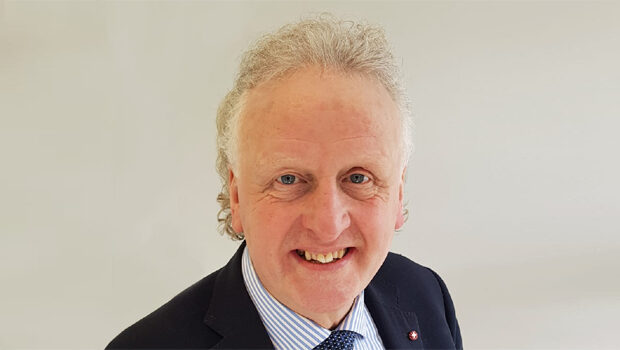

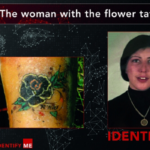
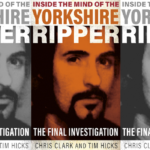
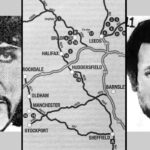
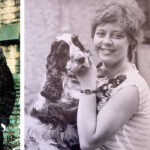
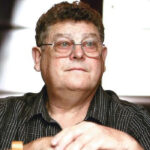
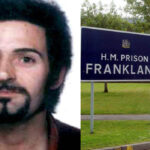

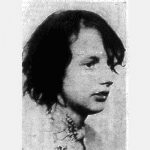
















Comments are closed.